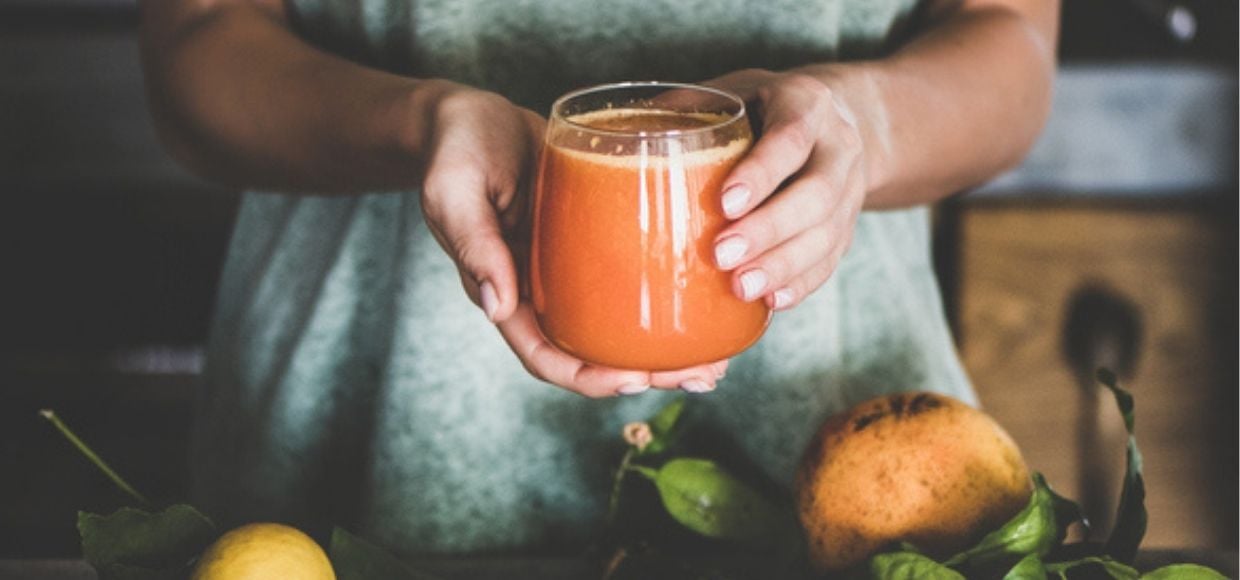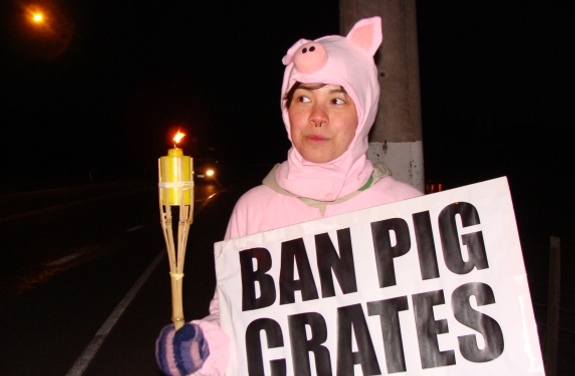Fasting has long been practised around the world as a way to reset and restore. Here, New Zealand fasting advocate and author Jason Shon Bennett offers his perspective on why people choose to include fasting in their lives today.
‘Fasting is the oldest medicine practiced in the world. It is the safest, most effective, most natural, powerful, and proven healing mechanism in human history. The question should really be, ‘Why not fast?’ given the unique health benefits that are only available through fasting’* Jason Shon Bennett.
*Good editor’s note: This statement reflects Jason Shon Bennett’s personal views and research. Fasting may not be suitable for everyone, we suggest having a fasting mentor like Jason for your first fast or for any longer fasts for peace of mind. If in doubt seek medical advice.
What is a fast?
Technically, fasting is any condition when the body is encouraged to initiate the process of autolysis, or self-digestion. A fast usually means drinking only liquid without eating any food at all for a period of time. Fasting is done for therapeutic reasons: to help cure illness, rebalance the body, spring clean, support disease prevention, break addictions, kickstart a new habit, or to lose excessive weight. Although water fasting is often seen as the gold standard, it’s hugely demanding. In our busy, overstimulated, and under-slept world, only a small handful of people I’ve coached have been able to sustain it—it’s simply too far removed from how most of us live day to day.
Fasting can be life changing
I have fasted hundreds of times over 35 years, from simple one day fasts to a life changing mega-31-day fast, to 50 day and 70-day fasts. I have experienced so many benefits including increased energy levels, improved digestion, loss of bloating, younger skin, removal of impacted bowel waste, weight loss, asthma symptoms disappearing, creative song writing episodes and clarity of thought. Fasting is one of the great freeing experiences you can have. You step back from the world, let go of sensations, give your body a respectful rest and inner-clean, and allow the magic of the human body to happen.

The Top 10 benefits of fasting
- Provides a much-needed rest for internal organs.
- Accelerates the elimination of diseased, decaying, dying or dead cells.
- Rebuilds your intestinal bowel health.
- Breaks the gluten, fat, sugar and salt food addictions.
- Restores normal glandular, hormonal and metabolic rates.
- Completely transforms skin.
- Reduces pain and inflammation in the body.
- Improves cellular oxygenation and nutritional uptake.
- Alkalises and relaxes the nervous system.
- Lowers serum fats (which restores vitality to the organs).
When fasting, the body switches on the ‘inner-nutrition’ and starts burning rubbish as fuel. This fuel is contained in every cell and every organ, in the form of glycogen in the liver, protein in the blood/lymph system, stored fat (even in thin people), and assorted food elements in the bone marrow and glands. The miracle is that the body will first burn those cells that are damaged, diseased, dying or dead, which I like to call the 4Ds. The body will feed on and remove fat deposits containing pesticides, medicines, drugs, additives, toxins, tumours, dead tissues, uric acid and useless accumulations. The essential organs like the brain and nervous system are not eaten (a good thing!).
Fasting cuts the body some slack
Fasting is primarily effective because it gives the body a genuine chance to rest, recover, rebuild and refresh. Specifically, the digestive organs (stomach, liver, kidneys, intestines and bowels), are given a rare break from the continual digestion of food. Up to 60% of the energy you have at any one time can be spent on digestion, so this saved energy can be used for healing, cell growth, regeneration, cleansing and the rebuilding of your immune system.
Fasting helps boost almost all body functions
Studies have demonstrated the tremendous beneficial effects of fasting on the various human body functions, particularly on the gastrointestinal (digestive) and cardiovascular (heart) systems. Fasting does not affect the working of the brain because mental work does not require extra energy. Your brain consumes equal amounts of glucose and oxygen whether you are awake, asleep, eating or fasting.
‘Fasting is a refuse disposal, a burning of rubbish’
Dr Buchinger Sr, one of the world’s greatest fasting authorities, Germany.
How does fasting work?
Fasting is a very complicated physiological process. This article is a basic introduction to fasting, not a thorough or complete detailed scientific explanation of it (for a full explanation and guide, grab my best-selling fasting book ‘Eat Less, Live Long’). Simply put, when fasting, you burn your rubbish as fuel. The body runs out of fuel and starts recycling body fat for consumption (our cells regenerate – known as autophagy). This is very different to starvation. Starvation is when you have no body fat and no stored fuel. In the West, this is extremely rare.
The Five Processes of Fasting
- Lipolysis (glycogen reserves used up)
- Autolysis (eating the 4Ds**)
- Gluconeogenesis (old proteins are recycled to glycogen)
- Ketogenesis (body fat broken into ketones/energy)
- Ketosis (body fuels itself solely on ketones)
Some Tips for Successful Fasting
- A good, strong juicer (Breville do a good mid-priced $450-ish model).
- Lots of in-season fresh fruits and vegetables (for if you are juicing at home).
- Make fresh ginger tea – for warmth and poison removal. Just grate a few knobs of ginger and pour hot water on top.
- Have back-up juice at home just in case (Homegrown do some great mixes).
- A good variety of natural and pure herbal teas. Good choices for their medicinal powers are dandelion, nettle, liquorice and peppermint.
- Relax, do not be too rigid, go to bed early and get enough sleep.
- Go into a fast already fit so you can carry on exercising while fasting.
- Drink as much as you feel the need to, but do not drink until you feel bloated. Initially you will be drinking all day, but you will find the longer you fast the less liquid you need. Trust your instincts when it comes to water intake. There is no set amount for juice in a day, just what feels healthy and comfortable for you. While juice fasting, I have between 0-3 glasses of freshly made vegetable juice over a day.
- Dress warmly. You get colder as your body fat reserves fall.
- During fasting, before you stand up, take one or two deep breaths to get the heart pumping and to stop light-headedness.
- Use the loofah or body glove scrubber before your shower or bath as you are shedding lots of skin cells and toxins through the skin.
- Get support. Always have a support person who knows what you are doing and why, so they can help when you feel low and encourage you when you need it. Flatmates, family or workmates are the best support people. Fasting with a friend or loved one you live with is the best fasting of all.
- Brush your teeth! Your breath may really smell bad. This is a result of the blood cleaning toxins from the body and your bowel letting go of old rotting waste. Carry a toothbrush and toothpaste with you at all times!
- Keep mentally busy. Keep yourself busy. Start a project you’ve been meaning to do, write a letter to a friend/family member, go for a walk around the block, watch a movie (or TV series!), do the washing or vacuuming, have a rest with a book etc.
- Remove all temptation like junk-foods. Stay away from the kitchen if people are cooking!
G.O.L.D.E.N. Rule #1: Be Prepared & Control Your Environment
As I write about in my second book, ‘My 20 GOLDEN Rules’, have a goal when fasting. Plan for it and prepare for it. Why are you doing this, what do you want to achieve, how will it make you feel? I recommend starting with a one-day 36-hour fast on either a Saturday or Sunday when you can be at home. If it goes well, a week later try fasting for the entire weekend. Then two weeks after that, try three days.
Warn your friends and family as you may get a little testy while fasting, as we eat junk foods out of boredom, habit or emotional need. Chocolate, chips and lollies give us an immediate lift and an immediate drug-like feeling of happiness (which is why they sell so well). Watch your emotions carefully because you will be more prone to being snappish and irritable.
Above all?
Be gentle with yourself – it is ok to fail. I still fail all the time! If it doesn’t go well, don’t beat yourself up. Draw a line in the sand and try again the following week, and keep trying until you complete your full one-day fast. You will get there.
Jason Shon Bennett is a health researcher, inspirational speaker, author, and creator of Regular Intelligent Fasting®, known worldwide for his self-cured health journey and bestselling books Eat Less, Live Long (2014), My 20 Golden Rules (2015), and Feel Great & Live Longer (2018). Born premature and chronically ill with asthma, allergies, and frequent infections, he spent over two decades on heavy medication before transforming his health through studying nutrition, food as medicine, and fasting—remaining medication-free and well for more than 30 years. His expertise in the link between food and lifestyle diseases has led him to train health professionals globally, appear on top media platforms in New Zealand and Australia, and inspire thousands internationally with his story and teachings.
For those wanting support during fasting, or to work with Jason Shon Bennett, you can find him at jasonshonbennett.com
** 4D’s
Dead – cells that have already expired but haven’t yet been fully cleared.
Dying – cells on their way out, malfunctioning or damaged.
Diseased – abnormal cells (sometimes even pre-cancerous) or those impaired by infection, toxins, or mutation.
Dormant – inactive or non-functional cells that aren’t serving the body.






